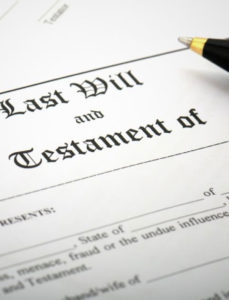If you’ve just come into an inheritance or another windfall like a settlement, it may be tempting to spend a little (or a lot) on some indulgences.

Even if – especially if – you’re already prudent with your budget and spending habits. You might be thinking, “I’m on top of my finances. What’s the harm of blowing a little cash on a few treats?” But read on. An inheritance or other monetary bonus – if handled wisely – has the potential to make a lifelong financial difference.
Start with these tips to help you make some lasting decisions about your newfound money.
Don’t make quick decisions
If you’ve received an inheritance from the death of a family member, you may want to take some time to grieve and start to develop a “new normal” before you make any big financial decisions.
Consider parking the money in a money market account or a high-interest rate savings account and letting it sit until you’re ready. A good rule of thumb when making a major financial decision is to give it at least 30 days. Shelve it for 30 days and then see how you feel. If you’re still not sure, put it back on the shelf for another 30 days.
Don’t feel rushed into making decisions about how to handle the money. It’s more important to take your time and make a careful decision than rushing into purchasing big-ticket items or making investments that may not be right for you.
Don’t shout it from the rooftops
Be cautious with whom you talk to about the inheritance. It’s best to discuss it with only a few trusted friends or family members. The more people you tell, the more “advice” you’re going to get about what you should do with the money. Some might even ask you to invest in one of their interests. (Which may be OK – that’s up to you!)
If you do come in to some money, one of your first calls should be to a qualified financial professional. Remember, it’s probably best to keep input minimal at this point, so tell as few people as possible.
Create a financial strategy
When you’re ready, it’s time to create a financial strategy. A financial professional can help you clarify your financial goals and offer a roadmap to get you there. No matter how much you inherited, developing a financial strategy is a must. Here are a few considerations to start:
Debt: If you have debt that is costing you money in the form of interest, this may be a good time to pay it off.
Emergency fund: If you don’t have a proper emergency fund, consider using some of the inheritance to fund one. An emergency fund should be 6-12 months of expenses put away in an easily accessible account for emergencies. An emergency is something like home or car repairs or unexpected medical bills (not a spur of the moment vacation or purchase).
Pay down your mortgage: If you have a mortgage, you may want to pay down as much as possible with some of the inheritance. The smaller your mortgage the better, because you’ll end up spending less in interest.
Saving for retirement: Saving some of your inheritance is probably never going to be a bad choice. Work with a financial professional to see what your options are.
Charitable donations: A charitable gift is always a good idea.
Have some fun
Coming into some unexpected money is exciting! You may be tempted to rush out and start spending. Make sure you do your financial decision-making first and then be sure to have some fun. Maybe give yourself 10 percent of the money to just enjoy. Maybe you want to take a cruise or buy a new high-end kayak. The point is to treat yourself to something, but only after you have a solid financial strategy in place.
An inheritance is a gift
Keep in mind that an inheritance is a gift. Somewhere along the line, someone worked for every one of those dollars. Something to keep in mind is that you can honor that person’s hard work by being a responsible steward of their gift.